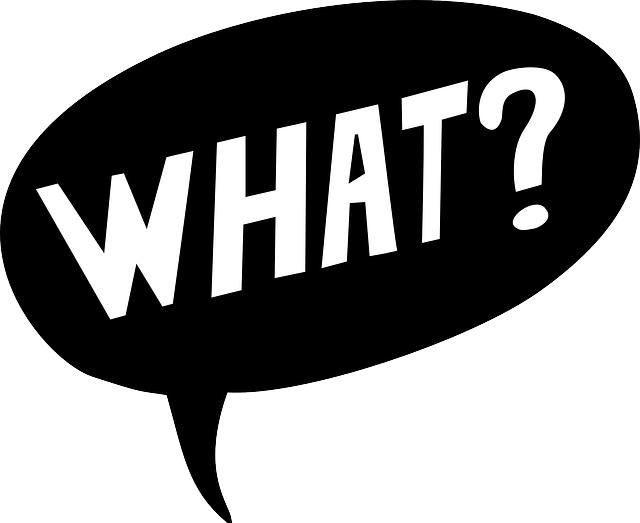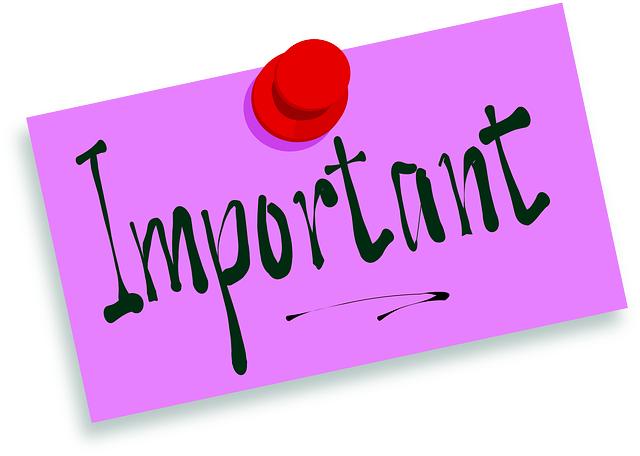- Introduction
- Understanding Plagiarism
- Importance of Plagiarism Checkers
- Top Free Online Plagiarism Checkers
- How to Use Plagiarism Checkers Effectively
- Conclusion
- FAQs
Introduction
In today's digital age, the importance of producing original content cannot be understated. Whether you're a student, educator, or professional writer, ensuring your work is free from plagiarism is crucial. This article will delve into various aspects related to plagiarism and how to avoid it using free online tools. Here are the key topics we will cover: understanding plagiarism, the importance of plagiarism checkers, a list of the top ten free online plagiarism checkers, and tips on how to use these checkers effectively.
Understanding Plagiarism

(Image: Pixabay/@OpenClipart-Vectors)
Plagiarism is the act of using someone else's words, ideas, or expressions without proper acknowledgment, presenting them as your own. This can occur unintentionally, especially in academic writing, where students may inadvertently paraphrase or summarize text without citing their sources accurately. Understanding the various forms of plagiarism is essential to avoid penalties, which can range from failing an assignment to expulsion from an academic institution.
Different types of plagiarism include direct plagiarism, where one copies text word-for-word; self-plagiarism, which involves using one's previous work without disclosure; and mosaic plagiarism, which comprises mixing copied phrases with original text. Additionally, there's accidental plagiarism, where a person unintentionally fails to credit sources correctly.
The consequences of plagiarism can severely affect a person's academic integrity, professional reputation, and legal standing. It’s imperative for writers to grasp not just what plagiarism is, but how to ensure they are communicating their ideas authentically and ethically.
Many educational institutions stress the importance of originality, making plagiarism awareness essential for students. Understanding this topic can yield a more profound appreciation for intellectual property while fostering a culture of respect among peers.
Importance of Plagiarism Checkers

(Image: Pixabay/@Clker-Free-Vector-Images)
With the rise of content creation, the necessity for plagiarism checkers has increased significantly. These tools help writers verify the authenticity of their work before submission, ensuring it adheres to ethical standards. Plagiarism checkers offer several benefits that enhance a writer's credibility and learning experience.
One of the primary reasons plagiarism checkers are important is to maintain academic integrity. For students, submitting original work is often tied to academic performance; thus, utilizing these tools helps safeguard against unintentional mistakes. Professors and scholars also rely on these applications to uphold high standards within their disciplines, preserving the trust amongst peer-reviewed publications.
Moreover, in professional environments, published work reflects not only individual capability but also a company's ethics. Businesses that produce content must ensure all published material is authentic to maintain client trust and foster reliability. This underscores the necessity for plagiarism detection, extending beyond academia and into various sectors of society.
Lastly, plagiarism checkers serve as educational aids. They illuminate areas where users may need improvement in citation practices or language skills, providing valuable insights into proper referencing and ensuring they become more proficient writers in the long run.
Top Free Online Plagiarism Checkers

(Image: Pixabay/@Muscat_Coach)
Now let’s explore the top 10 free online plagiarism checkers that can help you verify the originality of your content. Each tool possesses unique features to cater to different user needs.
1. Grammarly
Grammarly is widely known for its grammar and spell-checking capabilities, but it also offers a robust plagiarism checker. Its interface is user-friendly, allowing users to submit documents for instant checks against billions of web pages, ensuring comprehensive coverage. With additional suggestions for enhancing writing style, Grammarly serves as an all-in-one tool for improving written communication.
2. Quetext
Quetext provides a straightforward plagiarism detection service that allows users to paste or upload texts for analysis quickly. The tool compares the content against numerous sources and highlights matching parts, along with appropriate citations. Quetext's premium version introduces features like DeepSearch, offering advanced checks, making it ideal for professionals and academics alike.
3. Small SEO Tools Plagiarism Checker
This tool is an excellent option for those looking for a simple and efficient way to scan for plagiarism. Users can upload files or copy-paste texts for analysis, receiving quick results that will pinpoint potential matches. Small SEO Tools also boasts a user-friendly interface, making it accessible to beginners.
4. Plagscan
Plagscan differentiates itself with an emphasis on institutional use. While individuals can also utilize it, the platform is popular among publishers and educational institutions for comprehensive reports and deep algorithm analysis. Users who wish to understand the context of detected similarities will find Plagscan exceptionally useful.
5. DupliChecker
DupliChecker is user-friendly and offers daily checks free of charge, making it appealing to students and casual users. The tool provides detailed reports highlighting sections that require attention. For more extensive usage, the application offers a premium service with added features.
6. PaperRater
PaperRater combines grammar and plagiarism checking into one platform. Offering real-time suggestions and analysis, it aims to improve overall writing quality. Users receive feedback on structure and vocabulary along with plagiarism detection, making it a comprehensive resource for writers.
7. Search Engine Reports
Search Engine Reports’ plagiarism checker scans content in multiple languages and produces easy-to-understand reports. Users are able to search using a specific text or upload a file, and the software will flag potential issues. Additionally, this platform offers other useful SEO tools, enhancing its value for bloggers and digital marketers.
8. Plagiarism Checker by Search Engine Reports
This tool provides a simple yet effective means of checking for copied content. It can analyze written pieces according to criteria tailored to SEO purposes and distinguishes between major and minor matches. Unique to this tool is the ability to analyze blogs and essays across various categories and styles.
9. Plagium
With Plagium, users can engage in free, instant checks with the option to conduct deeper analysis through paid features. The platform allows users to check content in various formats and provides clear indicators of similarity and source identification, empowering writers to address issues promptly.
10. Scribbr
Scribbr's plagiarism checker is particularly revered in academic circles. With an emphasis on citations, it provides detailed guidance on how to correct any detected issues. As part of its services, Scribbr also includes resources for formatting, further supporting student success.
How to Use Plagiarism Checkers Effectively

(Image: Pixabay/@No-longer-here)
Employing plagiarism checkers effectively means maximizing the utility of these tools to cultivate originality in your work. Here are some tips to make the most out of your plagiarism detection process.
Firstly, always check your writing after drafting. Plagiarism can be completely inadvertent, stemming from poorly cited information or forgotten references. Run your text through a plagiarism checker prior to submitting assignments or publishing articles to catch even accidental instances.
Secondly, familiarize yourself with citation styles relevant to your field. Knowing whether to use APA, MLA, or Chicago styles can drastically reduce instances of potential plagiarism. Many tools provide tips for citations, so take advantage of this feature to fill in gaps in your understanding.
Additionally, use specific rather than general searches within the plagiarism checker. This can yield more accurate results, especially if checking for multiple sources. Breaking your content into smaller sections for checking at a time can also assist in pinpointing specific problematic areas quickly.
Finally, learn from the feedback provided by the plagiarism checkers. Most tools will give insights into phrasing and sources matched, helping you identify patterns in how you write that may lead to unintentional copying. Using this information constructively enhances your writing skills over time.
Conclusion
Ensuring the originality of your work is essential in academic and professional environments. By utilizing free online plagiarism checkers, you not only protect your integrity as a writer but also develop your skills. The tools we've explored demonstrate diverse approaches to detecting plagiarism, each catering to distinct user needs. Take advantage of these tools, implement best practices, and strive for originality in all your writing endeavors.
FAQs
What is plagiarism?
Plagiarism is the practice of using someone else's work, ideas, or expressions without proper acknowledgment, portraying them as your own. It can occur intentionally or unintentionally in academic and professional settings.
Why should I use a plagiarism checker?
A plagiarism checker helps you identify potential matches with existing content, ensuring your work is original. Using these tools enhances your credibility, maintains academic integrity, and protects against unintentional mistakes.
Are free online plagiarism checkers reliable?
While many free online plagiarism checkers are effective, paid versions often provide more comprehensive analysis and support. However, reputable free options exist and can hold significant value for students and casual users.
Can plagiarism checkers detect self-plagiarism?
Yes, many plagiarism checkers can identify self-plagiarism, which occurs when authors reuse their previous work without proper citation. These tools highlight similarities that can aid authors in recognizing repeated use of their material.
How accurate are plagiarism checkers?
Plagiarism checkers vary in accuracy based on their algorithms and databases. While some tools provide broad scans across the internet, others may yield more precise results depending on the content type. It’s best to check content through multiple tools for a more accurate overview.
